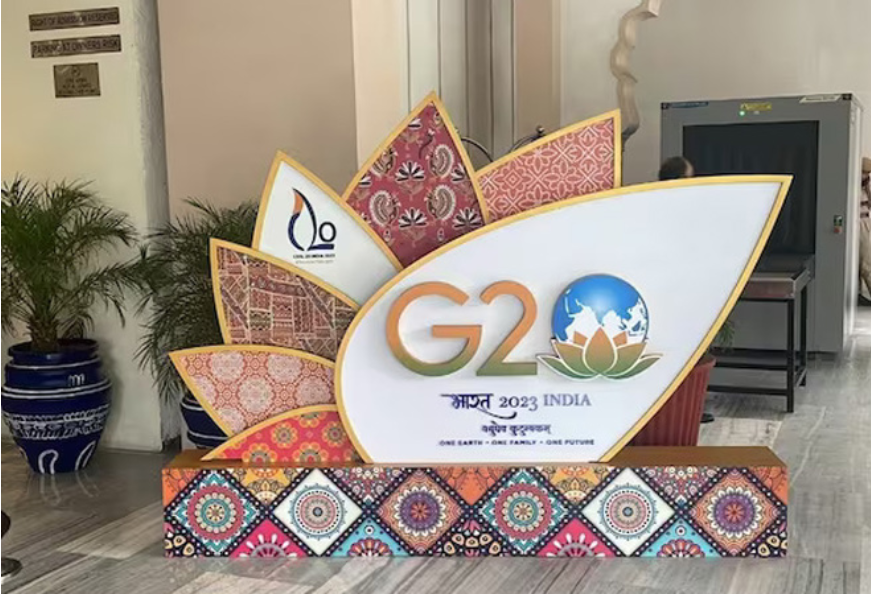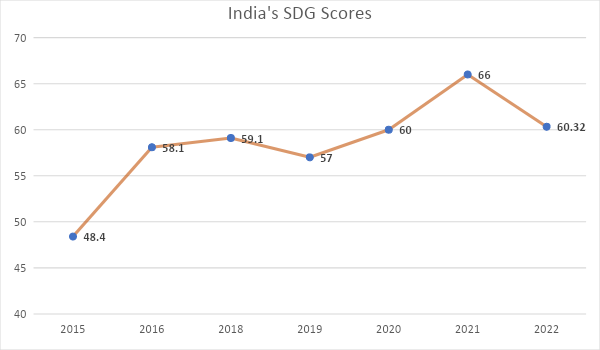-
CENTRES
Progammes & Centres
Location
India’s presidency of the G20 is an opportunity to promote the Global South's development narratives and leverage its status as the world's fastest-growing major economy to drive the G20's agenda

India has been at the helm of the G20 Presidency since 1 December 2022. Amidst the lingering effects of the COVID-19 pandemic, the Russia-Ukraine geopolitical tensions, and the global food and energy security challenges, India has adopted an inclusive governance approach. It leverages the G20 platform to foster multilateralism and drive significant contributions toward enhancing globalisation by reshaping international negotiation processes and advancing the sustainable development priorities of the Global South.
The 2008 global financial and banking crisis marked a pivotal moment, leading to the first G20 Summit.
Originally formed as a grouping of Finance Ministers and Central Bank Governors to discuss policies aimed at ensuring global financial stability, the G20 emerged in 1999 in response to the 1997 international financial crisis. The 2008 global financial and banking crisis marked a pivotal moment, leading to the first G20 Summit. Today, the G20 addresses a broad spectrum of issues, encompassing poverty and inequality, financial stability, and debt relief, among others—all of which fall under the broad umbrella of the United Nations (UN) Sustainable Development Goals (SDGs) Agenda 2030.
The growing web of Western economic sanctions has exerted mounting pressure on emerging economies, exacerbating the challenges posed by surging inflation, which extends beyond the realms of food and energy prices. These pressures are compounded by the persistent disruptions stemming from the ongoing COVID-19 pandemic and the looming spectre of a global recession. Against this backdrop, the G20 Summit in September 2023 assumes unparalleled significance. The policy decisions and strategies formulated at this summit resonate globally, given that the G20 member nations collectively wield commanding influence—accounting for more than 80 percent of the world's Gross Domestic Product (GDP), overseeing 75 percent of global trade, and stewarding 60 percent of the global population.
In this context, India's leadership role at the summit is multifaceted. India's Presidency is positioned to navigate the intricate landscape of these pressing issues and steer the G20's collective efforts towards advancing the three pillars of sustainable development: People, planet, and prosperity. India aims to foster inclusive post-pandemic recovery and multilateral cooperation, focusing on labour market challenges, health infrastructure, climate finance, and debt governance, as it seeks to contribute significantly to the betterment of the international community.
Figure 1: India's SDG Index Scores (out of 100), 2015 – 2022

Source: Sustainable Development Solutions Network
A) One Earth: Climate financing
India, the fourth-largest carbon dioxide emitter globally, boasts lower per capita emissions than developed economies. In 2019, India emitted 1.9 tonnes of CO2 per person, contrasting with the US’ 15.5 tonnes per capita and Russia's12.5 tonnes. Achieving net-zero emissions by 2070 could potentially boost India's GDP by up to 4.7 percent above the baseline growth predictions by 2036, amounting to US$371 billion. To fulfil this pledge and reap fiscal benefits, India must overcome various hurdles—notably financial ones—through international negotiations that the G20 platform provides.
Achieving net-zero emissions by 2070 could potentially boost India's GDP by up to 4.7 percent above the baseline growth predictions by 2036, amounting to US$371 billion.
India is also poised to reassert its proposal for establishing a "clean energy projects fund," allocating one percent of the GDP of wealthy nations to finance green initiatives in underdeveloped countries. Additionally, India must advocate for creating an international standards organisation among G20 nations to promote the production and utilisation of green hydrogen.
B) One Family: Advancing human capital
The pandemic has underscored the urgency of collaboration in strengthening public health infrastructure. Establishing a global fund for emergency medical supplies and setting international health standards and procedures are pressing needs that India can push for. Additionally, digital solutions are pivotal for achieving health and well-being goals. The digitisation and interoperability of health records, exemplified by platforms like India's Co-WIN and contact-tracing apps, are crucial for efficient care delivery. Global partnerships that the G20 could enable are vital due to the cross-border nature of health risks and financial constraints, particularly in the Global South.
Establishing a global fund for emergency medical supplies and setting international health standards and procedures are pressing needs that India can push for.
In early 2023, India surpassed China as the world's most populous nation. While this burgeoning young population presents a distinct competitive advantage, the current lack of employment opportunities poses a challenge. Target 8 of the SDGs, "Decent Work and Economic Growth," is predominantly viewed as a national-level challenge. Consequently, India is expected to centre its Presidency agenda on a fair and inclusive post-pandemic economic recovery and multilateral collaboration facilitated by the G20, emphasising the development of a robust fiscal and monetary support system with an effective expansion of health infrastructure for skilling and other human capital advancements.
C) One Future: Post-Pandemic economic recovery
An inclusive and equitable post-pandemic recovery is at the forefront of India's priorities. The paramount challenge facing the G20 lies in averting a wave of sovereign debt crises that could jeopardise both the international financial system and the pursuit of the SDGs. Thus far, the G20's efforts in debt relief have yielded modest results. Through the Debt Service Suspension Initiative (DSSI), introduced in May 2020, around US$12 million in debt service payments to official creditors were temporarily deferred for Low-Income Countries (LICs). Subsequently, in collaboration with the Paris Club, the Common Framework (CF) was established to restructure government debt on a case-by-case basis. Regrettably, only three nations, namely Chad, Ethiopia, and Zambia, have formally requested assistance through this Framework.
South Asian nations, including Bangladesh, Pakistan, and Sri Lanka, have relied on debt relief from international financial institutions such as the International Monetary Fund (IMF). While running economic reform policies aimed at integrating their economies with the global market, these countries have faced economic challenges that necessitate external financial assistance. For instance, Sri Lanka grappled with a severe economic crisis in 2022, highlighting its reliance on external financial support. On the other hand, Pakistan has entered multiple IMF bailout programmes over the years to address fiscal and economic imbalances. Although relatively better off economically, Bangladesh has also sought financial assistance through loans and aid packages from international institutions to manage its economic development and recovery efforts.
South Asian nations, including Bangladesh, Pakistan, and Sri Lanka, have relied on debt relief from international financial institutions such as the International Monetary Fund (IMF).
These engagements with the IMF underscore the economic vulnerabilities of these South Asian nations. India, the largest South Asian economy with significant trade ties with most of these countries, must not overlook the risks of social instability in nations grappling with severe debt crises. Therefore, addressing the debt issue should be a paramount concern on the G20's political agenda, along with the imperative of enhancing the governance and quota structure of the IMF.
The G20 Indian Presidency stands as a pivotal moment in Indian democracy, culminating in the G20 summit scheduled from 8 to 10 September 2023, in New Delhi. In an era marked by multilateral challenges, India shoulders the significant responsibility of restoring stability to a deeply divided multipolar world. It is an opportunity to promote the Global South's development narratives and leverage its status as the world's fastest-growing major economy to drive the G20'sagenda. As it takes the lead in this crucial gathering of world leaders, India's role is poised to shape the course of global governance, emphasising the importance of collective action in overcoming the multifaceted challenges that confront the contemporary world.
Soumya Bhowmick is an Associate Fellow at the Observer Research Foundation
The views expressed above belong to the author(s). ORF research and analyses now available on Telegram! Click here to access our curated content — blogs, longforms and interviews.

Soumya Bhowmick is a Fellow and Lead, World Economies and Sustainability at the Centre for New Economic Diplomacy (CNED) at Observer Research Foundation (ORF). He ...
Read More +